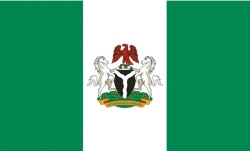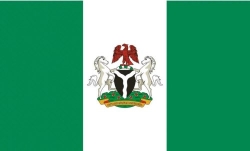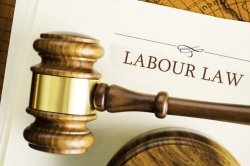
Kebbi State, located in the Northwestern region of Nigeria, is renowned for its rich cultural heritage, agricultural prowess, and strategic geographical positioning. Established on August 27, 1991, after being carved out from the old Sokoto State, Kebbi is often referred to as the "Land of Equity". The state shares international borders with the Republic of Niger and the Republic of Benin, and domestic boundaries with Sokoto, Zamfara, and Niger States.
With a population exceeding 4.7 million and covering an area of 36,985 km², Kebbi State comprises 21 Local Government Areas (LGAs). These LGAs play pivotal roles in the state's administrative, economic, and cultural landscapes. This article provides an in-depth look into each LGA, highlighting their headquarters, economic activities, cultural significance, and other notable features.
Quick Facts About Kebbi State
-
Capital: Birnin Kebbi
-
Nickname: Land of Equity
-
Date of Creation: August 27, 1991
-
Number of LGAs: 21
-
Major Ethnic Groups: Hausa, Fulani
-
Primary Languages: Hausa, Fulfulde
-
Major Religions: Islam, Christianity
-
Key Economic Activities: Agriculture, fishing, trade, mining
-
Notable Festivals: Argungu Fishing Festival
-
Emirate Councils: Gwandu, Argungu, Yauri, Zuru
Full List of LGAs in Kebbi State and Their Headquarters
| S/N | LGA Name | Headquarters |
|---|---|---|
| 1 | Aleiro | Aleiro |
| 2 | Arewa Dandi | Kangiwa |
| 3 | Argungu | Argungu |
| 4 | Augie | Augie |
| 5 | Bagudo | Bagudo |
| 6 | Birnin Kebbi | Birnin Kebbi |
| 7 | Bunza | Bunza |
| 8 | Dandi | Dandi |
| 9 | Danko/Wasagu | Ribah |
| 10 | Fakai | Mahuta |
| 11 | Gwandu | Gwandu |
| 12 | Jega | Jega |
| 13 | Kalgo | Kalgo |
| 14 | Koko/Besse | Koko |
| 15 | Maiyama | Maiyama |
| 16 | Ngaski | Wara |
| 17 | Sakaba | Dirin Daji |
| 18 | Shanga | Shanga |
| 19 | Suru | Dakingari |
| 20 | Yauri | Yauri |
| 21 | Zuru | Zuru |
Detailed Overview of Each LGA in Kebbi State
1. Aleiro
-
Headquarters: Aleiro
-
Economic Activities: Renowned for being Nigeria's largest onion producer. Other crops include mangoes, rice, and guinea corn. Bonesetting is a notable traditional occupation among residents.
-
Climate: Experiences two distinct seasons with a prolonged dry season characterized by high temperatures and abundant sunshine.
2. Arewa Dandi
-
Headquarters: Kangiwa
-
Economic Activities: Predominantly agricultural, with significant cross-border trade due to its proximity to the Republic of Niger.
3. Argungu
-
Headquarters: Argungu
-
Economic Activities: Famous for the annual Argungu Fishing Festival, a UNESCO-recognized event. The area thrives on agriculture, cultivating crops like tobacco, groundnuts, rice, sorghum, and millet.
4. Augie
-
Headquarters: Augie
-
Economic Activities: Agriculture and fishing are predominant, with residents engaging in farming and fishery activities.
5. Bagudo
-
Headquarters: Bagudo
-
Economic Activities: Major rice-producing area, contributing significantly to Nigeria’s food security.
6. Birnin Kebbi
-
Headquarters: Birnin Kebbi
-
Significance: Capital city of Kebbi State and headquarters of the Gwandu Emirate. It serves as the administrative, commercial, and political center of the state.
7. Bunza
-
Headquarters: Bunza
-
Economic Activities: Primarily agricultural, with residents engaged in dry and wet season farming.
8. Dandi
-
Headquarters: Dandi
-
Economic Activities: Agriculture and cross-border trade are prevalent due to its location near the Republic of Niger.
9. Danko/Wasagu
-
Headquarters: Ribah
-
Economic Activities: Agriculture is the mainstay, with residents cultivating various crops and engaging in livestock farming.
10. Fakai
-
Headquarters: Mahuta
-
Economic Activities: Agriculture is predominant, with crops like onions, rice, millet, and sorghum. The area is also rich in mineral resources, including gold, attracting mining activities.
11. Gwandu
-
Headquarters: Gwandu
-
Significance: Historical town and home to the Gwandu Emirate. It holds cultural and historical importance in the state.
12. Jega
-
Headquarters: Jega
-
Economic Activities: Hosts the Kebbi State University of Science and Technology (KSUSTA). Agriculture and education are significant sectors.
13. Kalgo
-
Headquarters: Kalgo
-
Economic Activities: Residents engage in farming and fishing, contributing to the local economy.
14. Koko/Besse
-
Headquarters: Koko
-
Economic Activities: Agricultural development and trade are prominent, with residents involved in farming and commerce.
15. Maiyama
-
Headquarters: Maiyama
-
Economic Activities: Known for rice production and livestock farming, supporting the state's agricultural sector.
16. Ngaski
-
Headquarters: Wara
-
Economic Activities: Home to Kainji Lake, supporting fishing and tourism. The area benefits from hydroelectric power and fishery activities.
17. Sakaba
-
Headquarters: Dirin Daji
-
Economic Activities: Major fishing community along the Niger River, with residents engaged in agriculture and fishing.
18. Shanga
-
Headquarters: Shanga
-
Economic Activities: Agriculture is the primary occupation, with residents cultivating various crops.
19. Suru
-
Headquarters: Dakingari
-
Economic Activities: Predominantly agricultural, with residents engaged in farming and livestock rearing.
20. Yauri
-
Headquarters: Yauri
-
Economic Activities: Fishing and trade are significant, with the area benefiting from its location along the Niger River.
21. Zuru
-
Headquarters: Zuru
-
Significance: Rich in history and culture, Zuru is known for its military presence and diverse ethnic composition.
Strategic Importance of Kebbi State's LGAs
Kebbi State's LGAs are instrumental in driving the state's development across various sectors:
-
Agriculture: The backbone of the state's economy, with LGAs like Bagudo, Maiyama, and Aleiro leading in rice and onion production.
-
Fishing: LGAs such as Argungu, Yauri, and Ngaski thrive on fishing activities, contributing to food security and tourism.
-
Trade: Border LGAs like Arewa Dandi and Dandi facilitate cross-border trade with neighboring countries.
-
Education: Institutions like the Kebbi State University of Science and Technology in Jega enhance educational development.
-
Culture and Tourism: Festivals like the Argungu Fishing Festival and historical sites in Gwandu and Zuru promote cultural heritage and attract tourists.
Frequently Asked Questions (FAQs)
Q1: How many LGAs are in Kebbi State?
A: Kebbi State comprises 21 Local Government Areas.
Q2: What is the capital of Kebbi State?
A: The capital city is Birnin Kebbi.
Q3: Which LGA is known for the Argungu Fishing Festival?
A: Argungu LGA is renowned for the annual Argungu Fishing Festival.
Q4: What are the major economic activities in Kebbi State?
A: Agriculture, fishing, trade, and mining are the primary economic activities.
Q5: Does Kebbi State share borders with other countries?
A: Yes, it shares borders with the Republic of Niger and the Republic of Benin.
Conclusion
Kebbi State's 21 Local Government Areas are integral to its socio-economic development, each contributing uniquely through agriculture, trade, culture, and education. Understanding



